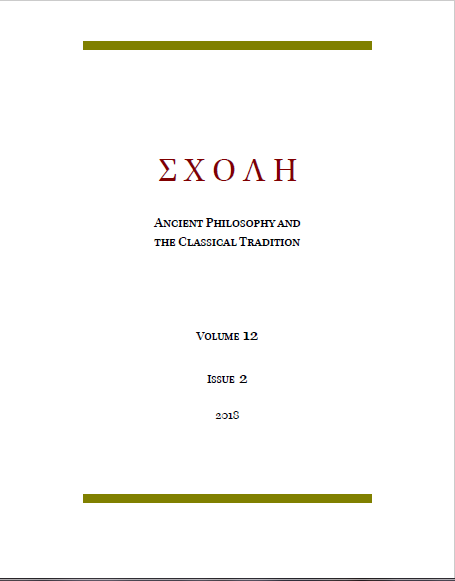ИМПЕРАТИВ BONA FIDES И ПРОБЛЕМЫ ИСПОЛЬЗОВАНИЯ ИНВЕКТИВЫ В ПОЛИТИЧЕСКОЙ БОРЬБЕ ПОЗДНЕЙ РИМСКОЙ РЕСПУБЛИКИ
IMPERATIVE BONA FIDES AND THE PROBLEMS OF INVECTIVE IN THE POLITICAL STRUGGLE OF LATE ROMAN REPUBLIC
Author(s): Vadim Perov, Evgenij DerzhivitskijSubject(s): Ethics / Practical Philosophy, Political history, Ancient World
Published by: Новосибирский государственный университет
Keywords: conscientiousness; pietas; trust; virtues; moral; civic virtue;
Summary/Abstract: The article is devoted to the ethical aspects of political struggle in late Roman Republic, when the genre of invective has become very widespread, becoming an ordinary part of public discussions. Gaius Sallustius Crispus, Markus Tullius Cicero and other prominent politicians in their invectives mutually insulted each other, trying to present their political opponents as absolutely immoral subjects. There were accusations not only of political insolvency, all sides of the private life of opponents were exposed. The authors of the article argue that this practice was based on a specific understanding of virtuous life in Roman society, which existed as a kind of synthesis of private and public morality. An analysis of the characteristic features of social life of this period made it possible to reveal the important role of the concept of conscientiousness (bona fidas), which can be regarded as an analogue of conscience that arose in later Christianity. It is conscientiousness that established a link between the veneration of relatives (pietas), which arose within the framework of personal family moral relations, and socially significant civil virtues. As a result, the veneration penetrated into public relations, and civic virtue turned into moral characteristics of the person. Conscientiousness was the basis both for the formation of personal trust, and for the existence of the Roman state (res publica).
Journal: ΣΧΟΛΗ. Философское антиковедение и классическая традиция
- Issue Year: XII/2018
- Issue No: 2
- Page Range: 535-550
- Page Count: 16
- Language: Russian

